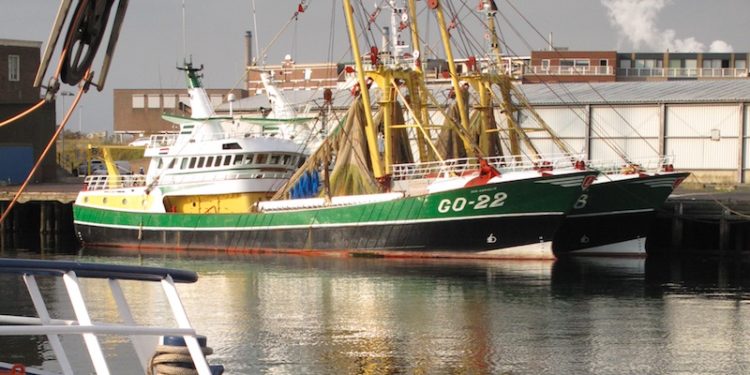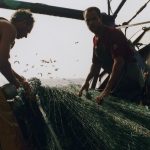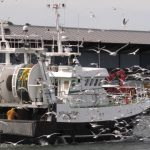Dutch pulse trawl fishermen are about to face the crunch as the trilogue meeting of the European Commission, European Council and European Parliament comes together to decide the future of the electrical fishing method that has been a lifeline for the Dutch beam trawl sector.
Dutch fishing industry leaders are preparing themselves, as far as is possible, for what they foresee as a ‘disastrous’ outcome for the Dutch trawler fleet.
In a statement, fishermen’s federations VisNed and de Nederlandse Vissersbond, along with grassroots organisation EMK, said that the industry is not prepared to accept a ban on pulse fishing.
The have appealed to Dutch Prime Minister Mark Rutte to discuss the issue with French President Emmanuel Macron – as the principle objections to pulse fishing come from the France.
According to the Dutch federations, there are currently around 80 beamers fishing with pulse gear under a derogation, and they point out that compared to their traditional fishing method, pulse trawling burns 46% less fuel, results in 20% less seabed disturbance and returns 50% less by-catch, while pulse fishing is one of the industry’s few sectors that has achieved a 50% reduction in emissions.
Emotional pressure
‘Despite extensive scientific research, pulse fisheries are victimised in the European political arena,’ the Dutch federations start, placing the blame squarely on French-based eNGO Bloom for having pursued a campaign to influence European politicians by disseminating false information about pulse fishing.
‘All the scientific studies that show that very positive results are being ignored and are being questioned by the activists,’ the federations state.
‘Bloom sidelines out scientific research and spreads fake news about the pulse gear. Decisions cannot be made on the basis of emotion, but must be based on facts,’ the three organisations state, commenting that decision-making at this level and on this basis is highly dubious.
A prohibition on pulse gear would leave a considerable part of the Dutch beamer fleet in difficulties, and would inevitably lead to other problems, including a substantial increase in fuel consumption – and estimated 78% – and consequently emissions of greenhouse gases.
The Dutch industry is now relying on Prime Minister Mark Rutte as its last resort, and the federations have written to him to make it clear that a a ban on pulse gear affects not only vessel owners and fishermen, but also entire supply chains through the seafood trade, the processing sector, the supply sector and beyond.









